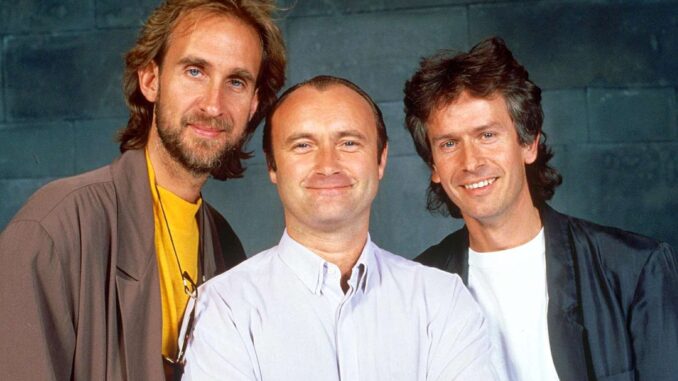
Exploring the Legacy of Genesis: A Journey Through the Band’s Groundbreaking Evolution
The legendary progressive rock band Genesis has left an indelible mark on the music world. Known for their innovative sound, intricate arrangements, and ever-evolving lineup, Genesis’ journey through time offers a fascinating look at both their musical achievements and the cultural moments they helped shape. As the band continues to inspire both new generations of fans and old devotees, there are several intriguing aspects of Genesis’ history that remain endlessly captivating.
Genesis’ Early Days: From ‘Nursery Cryme’ to ‘Foxtrot’
Genesis first rose to prominence in the early 1970s, with their distinctive sound blending progressive rock with intricate storytelling. The band’s 1971 album Nursery Cryme was their first major breakthrough, featuring the iconic lineup of Peter Gabriel, Tony Banks, Phil Collins, Mike Rutherford, and Steve Hackett. With songs like “The Musical Box” and “The Fountain of Salmacis,” Genesis began exploring conceptual and fantastical themes, quickly becoming one of the most ambitious bands of the era.
Their 1972 follow-up, Foxtrot, solidified their position at the forefront of progressive rock with classics like “Supper’s Ready.” The album’s complexity and rich narrative themes set the standard for the genre, showcasing their commitment to long, multi-sectional compositions.
Peter Gabriel’s Departure: Genesis Reinvented
Genesis underwent a seismic shift in 1975 when Peter Gabriel left the band, having exhausted himself from the rigors of touring and wanting to focus on personal projects. This moment marked the beginning of a pivotal era for the band. Enter Phil Collins as lead vocalist—a move that some saw as a risky departure from their previous persona.
Collins’ first full-length album with Genesis, A Trick of the Tail (1976), was a commercial and artistic success, proving that Genesis could adapt without Gabriel. The band’s sound evolved, with their musical style becoming more melodic and less reliant on their early prog-rock complexity. With hits like “Dance on a Volcano” and “Robbery, Assault and Battery,” Genesis demonstrated their knack for change while staying true to their roots.
The Pop Sensibility of the 1980s: ‘Invisible Touch’ and Mass Appeal
The 1980s marked the most commercially successful period for Genesis. With Invisible Touch (1986), the band achieved mainstream popularity, largely thanks to Collins’ increasingly successful solo career. Tracks like “Land of Confusion” and the title track became global hits, catapulting Genesis into the pop stratosphere. This era, characterized by synthesizers, radio-friendly hits, and shorter song structures, may have left some long-time fans longing for the band’s early, progressive rock days. However, it also expanded their reach to a much wider audience.
Their 1991 album We Can’t Dance continued this trend, featuring more polished, accessible sounds, and becoming their final album with Collins as the sole lead singer before his departure in 1996.
Post-Collins Era: Genesis Without Their Frontman
After Collins’ departure in the mid-1990s, Genesis experimented with different sounds and members. They briefly reunited with Ray Wilson (of Stiltskin fame) for the album Calling All Stations (1997), which was met with mixed reviews and didn’t resonate as strongly with fans of the band’s earlier sound. Still, it served as a testament to their desire to continue experimenting with new ideas.
In 2007, Collins, Rutherford, and Banks reunited for the Turn It On Again tour, marking a triumphant return for the trio. The tour proved that, despite decades of musical evolution, the essence of Genesis remained undiminished, drawing massive crowds and proving their enduring appeal.
The Genesis Legacy Today: A Timeless Influence
As Genesis continues to inspire new generations of musicians and listeners, their legacy is perhaps most significant in their ability to blend genres, themes, and sounds in a way that feels both pioneering and timeless. From their intricate, conceptual early albums to their more accessible pop hits in the 1980s and 1990s, the band has demonstrated a remarkable ability to evolve without sacrificing their artistic integrity.
Today, Genesis remains a touchstone for progressive rock and an influential force in the development of rock and pop music. With their intricate compositions, conceptual albums, and collaborative songwriting, they stand as one of the most celebrated and enduring bands in the history of modern music.
What’s Next for Genesis?
As rumors swirl about potential future reunions or legacy tours, it’s clear that Genesis’ influence remains strong in the world of rock music. Fans continue to hold hope for one last hurrah, but for now, the band’s catalog continues to shine brightly, offering a vast and diverse musical landscape for those willing to explore it.
In short, the story of Genesis is far from over—it’s merely a chapter that’s still unfolding.



Be the first to comment